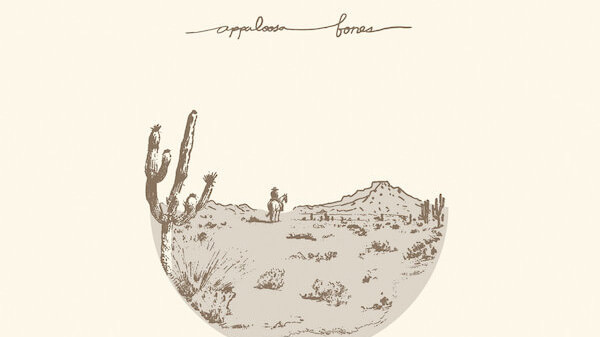Gregory Alan Isakov Does What He Knows Best on Appaloosa Bones
The folk singer/songwriter turns to familiar, comfortable inspirations on his sixth LP

I don’t quite recall the first time I heard Gregory Alan Isakov’s “Big Black Car,” but I do remember thinking I’d found something special. The indie-folk singer’s unpretentious storytelling, his grippingly simple finger-picking, the mystic, itinerant feel of it all: It was like I’d stepped into the backing-track of some haunting, quiet loss. At 11, I’d never experienced one myself, but I got the gist. That soft, twangy throughline defines Isakov’s work, and it comes as no surprise: He was born in South Africa but has lived much of his life in Colorado, where he dwells in a barn and runs a quaint farm just outside Boulder. I shouldn’t even have to tell you that. When you listen to Appaloosa Bones, his sixth studio record, Isakov’s background practically speaks for itself.
Appaloosa Bones is the singer’s first album in five years, and it feels like a homecoming in more ways than one. Many of the musical textures which defined Isakov’s early corpus dominate his new record: spacious, grand pauses, uncomplicated stylistics, disarming sincerity and an unassuming, affecting joie de vivre. It’s not that his music is energizing or jumpy—often the opposite, really—it’s that it’s almost entirely free of cynicism, instead embracing the sort of romantic, humanist mindset that feels so far removed from 21st-century reality. It’s a comforting thing, especially if you tie Isakov’s thematics with the lush Americana that girds his aesthetic landscape. He makes music for an uncorrupted country, one scattered with swaying fields and rushing brooks, straightforward heartbreaks and neatly-ending stories.
That reliability posits Isakov as an artist unlikely to release a song like you’ve never heard before, or a cutting-edge record full of novel sounds and ideas. But it doesn’t really seem like he’s trying to. He sings about 19th-century circus artists and vast Western skies, trusty horses and departing sweethearts. You could put him, Johnny Cash and Little Women on the same Pinterest board. For that same reason, Appaloosa Bones occasionally teeters on repetitive. Most of its songs are uniform in length, instrumentation and vocals, not to mention a conspicuously common fourth-quarter swell to bring the whole thing to a satisfying, dramatic endnote. It is, perhaps, not an album meant to be listened to front-to-back without a secondary activity. But the LP is rescued by its own sincerity; it proves impossible to resent the simplicity of the thing, because it’s just so darn sweet.
-

-

-

-

-

-

-

-

-

-

-

-

-

-

-

-

-

-

-

-

-

-

-

-

-

-

-

-

-

-

-

-

-

-

-

-

-

-

-

-








































